Traditional "chemistry" and craft: hobbies and everyday-life of a pensioner from the village of Khwap
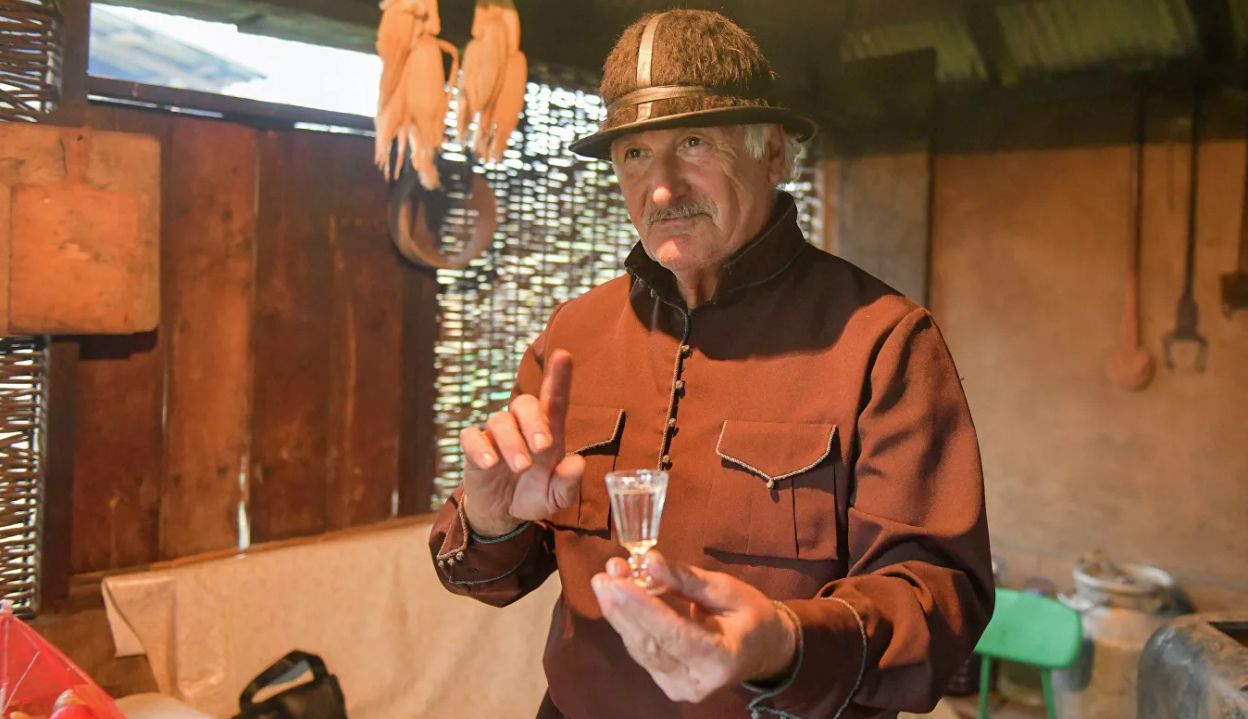
Roland Zantaria, a resident of the village of Khwap, Gudauta District, became interested in making staffs and Abkhazian knives; neither does he abandon the seasonal distillation of chacha according to the traditional recipe.
Chacha-distillation is an integral part of Abkhazian rural life. Roland Zantaria, a resident of the village of Khwap, Gudauta District, continues the work of his ancestors and brews up to 200 litres of this national drink every autumn.
He first cooked chacha on his own when he was in the 8th grade. His father taught him the basics of Abkhazian "chemistry". He sells most of the drink. For holidays or for receiving guests he is left with about 30 litres. This is enough until next season.
Two years ago, Zantaria also fell in love with making Abkhazian staffs, and even earlier, Abkhazian knives. Among the traditional staffs there are those used by shepherds and hunters; they were once adornments in the hands of nobles and peasants.
Zantaria began to make knives after being deprived a few years ago without permission of a donated weapon of cold steel. He was greatly upset by this and decided to make an Abkhazian knife with his own hand. Over the years, their number has only increased.
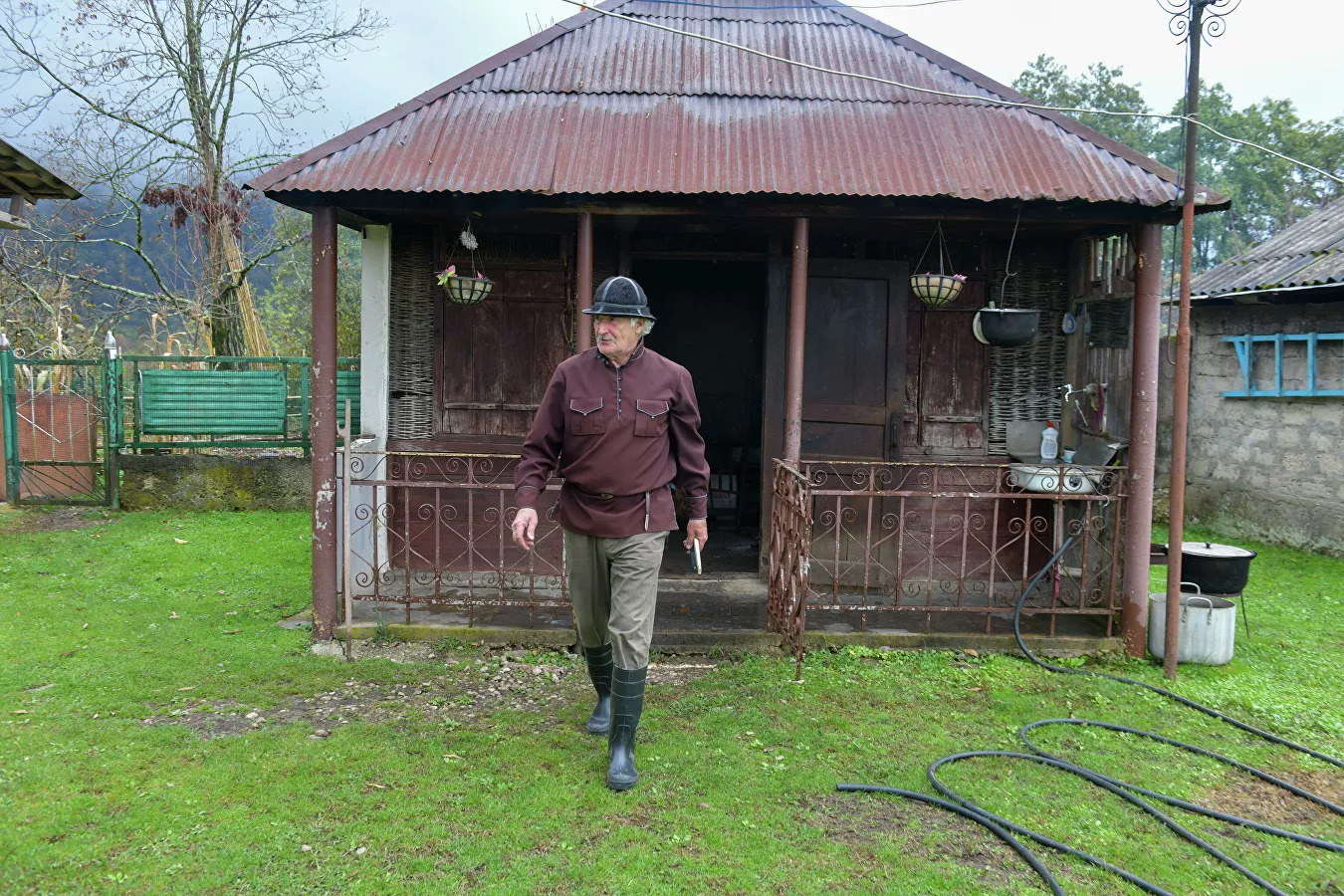 The physicist-mathematician of the village of Khwap Roland Zantaria distils chacha every autumn according to the method taught him by his father.
The physicist-mathematician of the village of Khwap Roland Zantaria distils chacha every autumn according to the method taught him by his father.
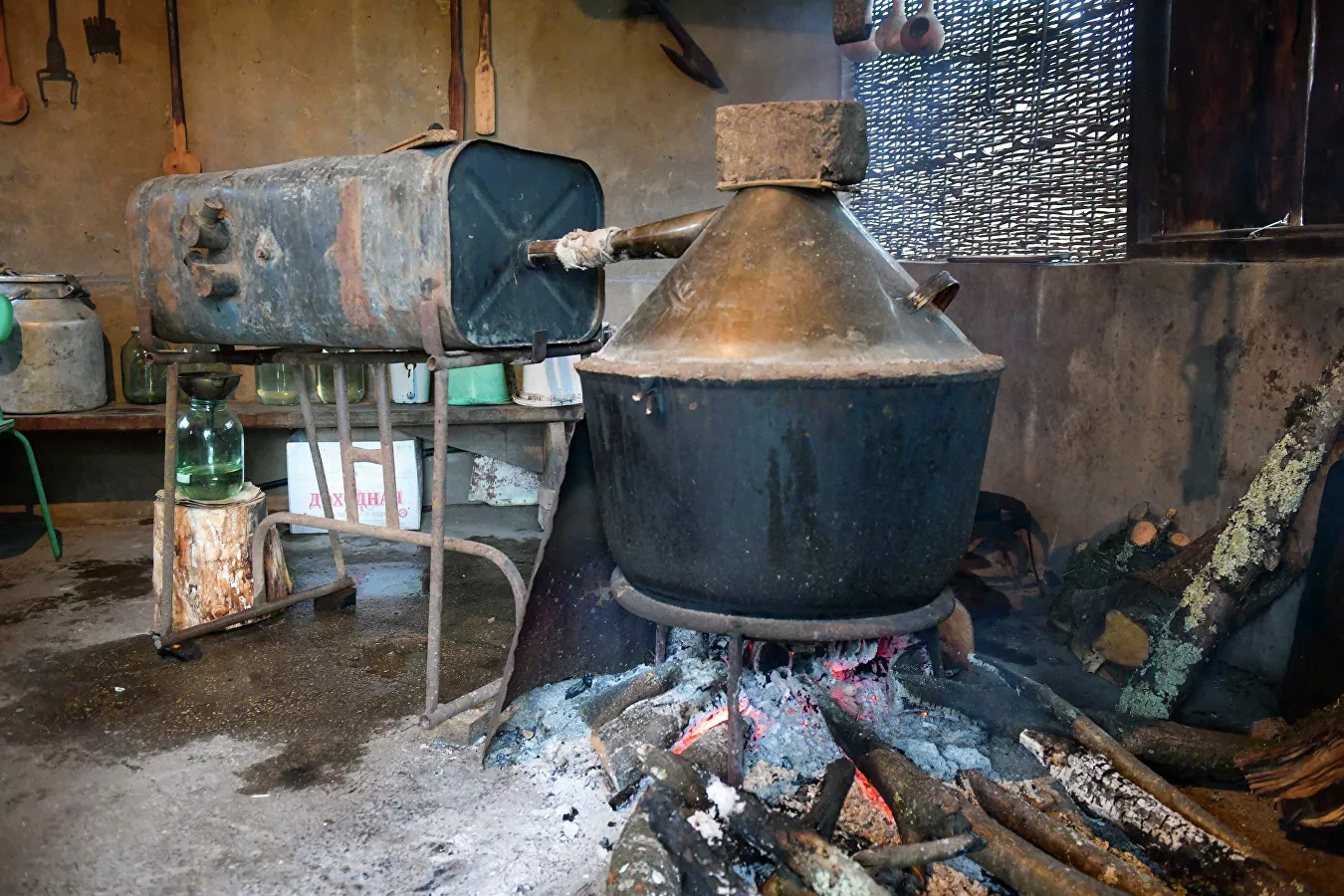 During the season, he produces about 200 litres of chacha out of from grapes or apples.
During the season, he produces about 200 litres of chacha out of from grapes or apples.
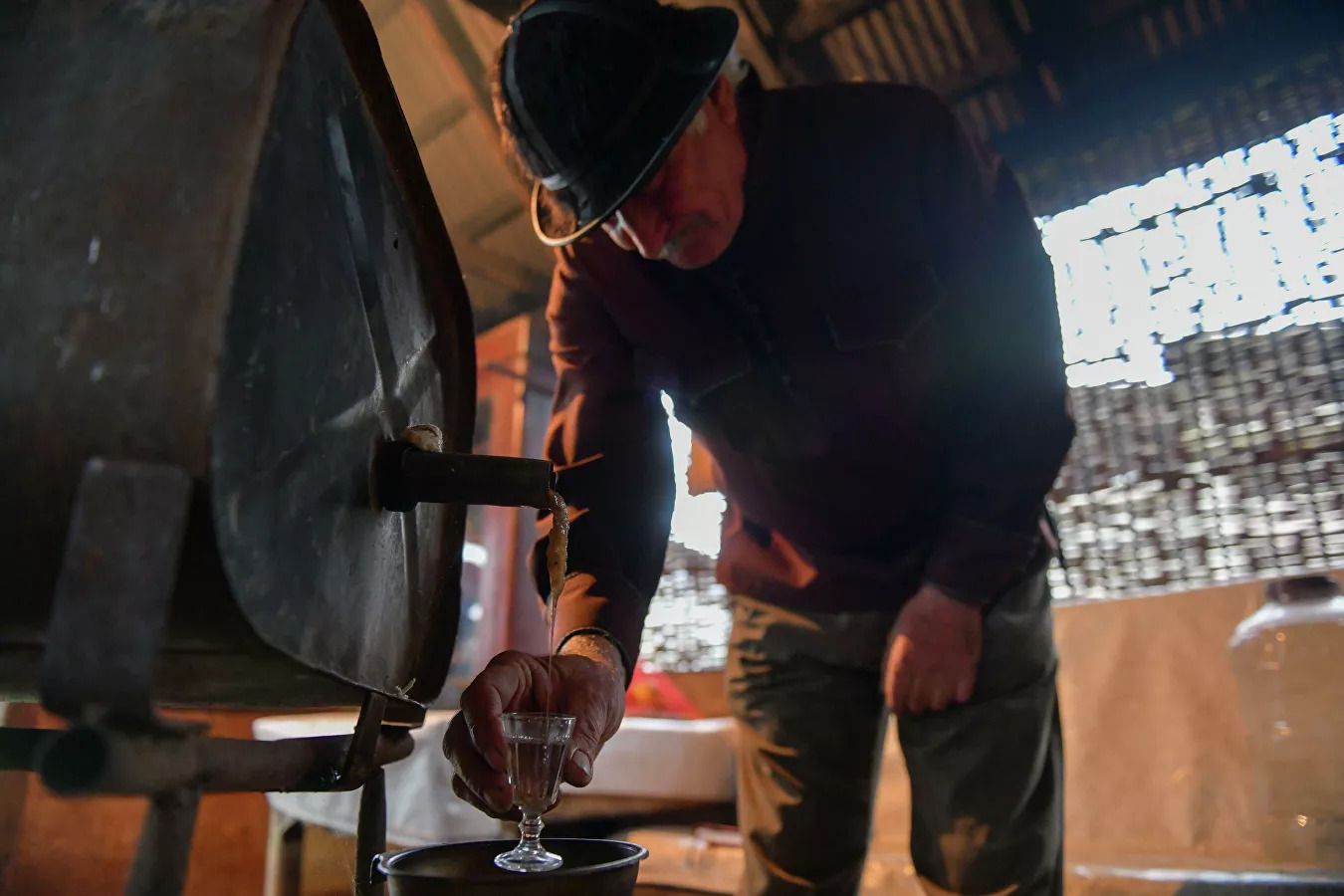 The steam that is generated in the still during the boiling of chacha rises up and, via the tube in the still-lid, enters another tube passing through the tank containing cool water. Condensation occurs in it, and the vapors turn into chacha, which is poured in a thin stream from the other side of the container into a jar through the funnel.
The steam that is generated in the still during the boiling of chacha rises up and, via the tube in the still-lid, enters another tube passing through the tank containing cool water. Condensation occurs in it, and the vapors turn into chacha, which is poured in a thin stream from the other side of the container into a jar through the funnel.
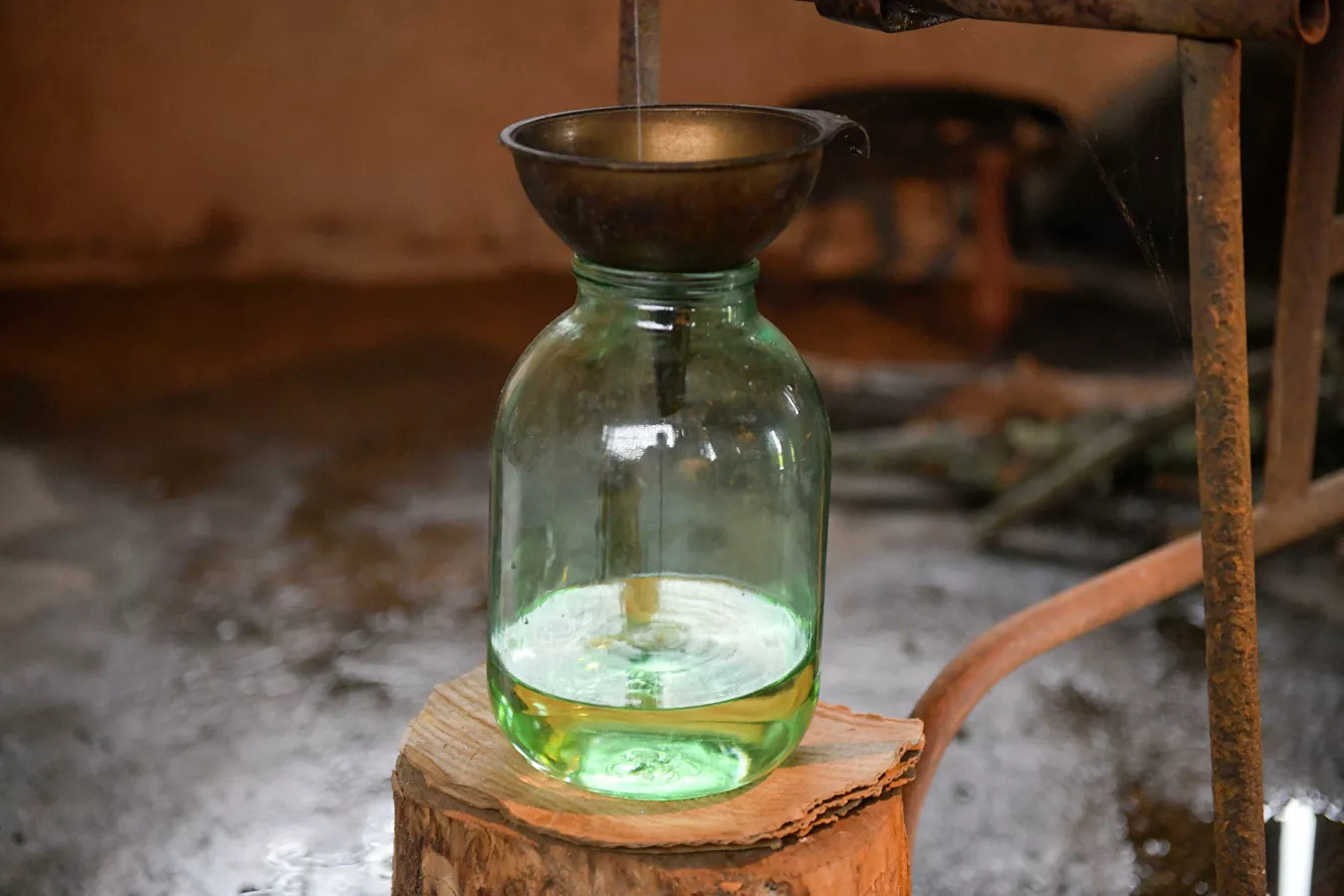 The home-made device produces about ten litres of this alcoholic drink per day.
The home-made device produces about ten litres of this alcoholic drink per day.
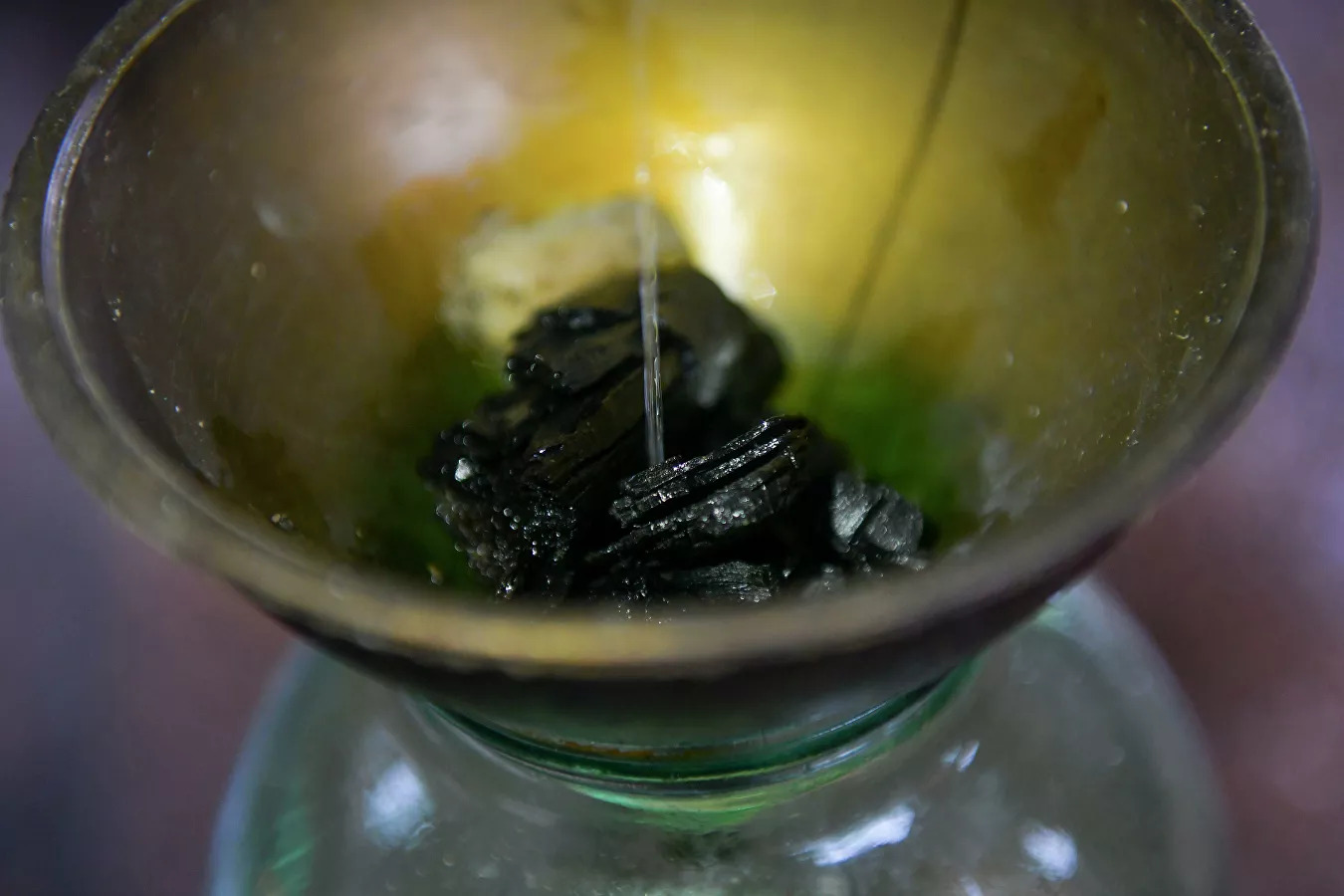 Roland puts coals from the fire into the funnel. This is necessary better to cleanse the chacha before it passes into the container.
Roland puts coals from the fire into the funnel. This is necessary better to cleanse the chacha before it passes into the container.
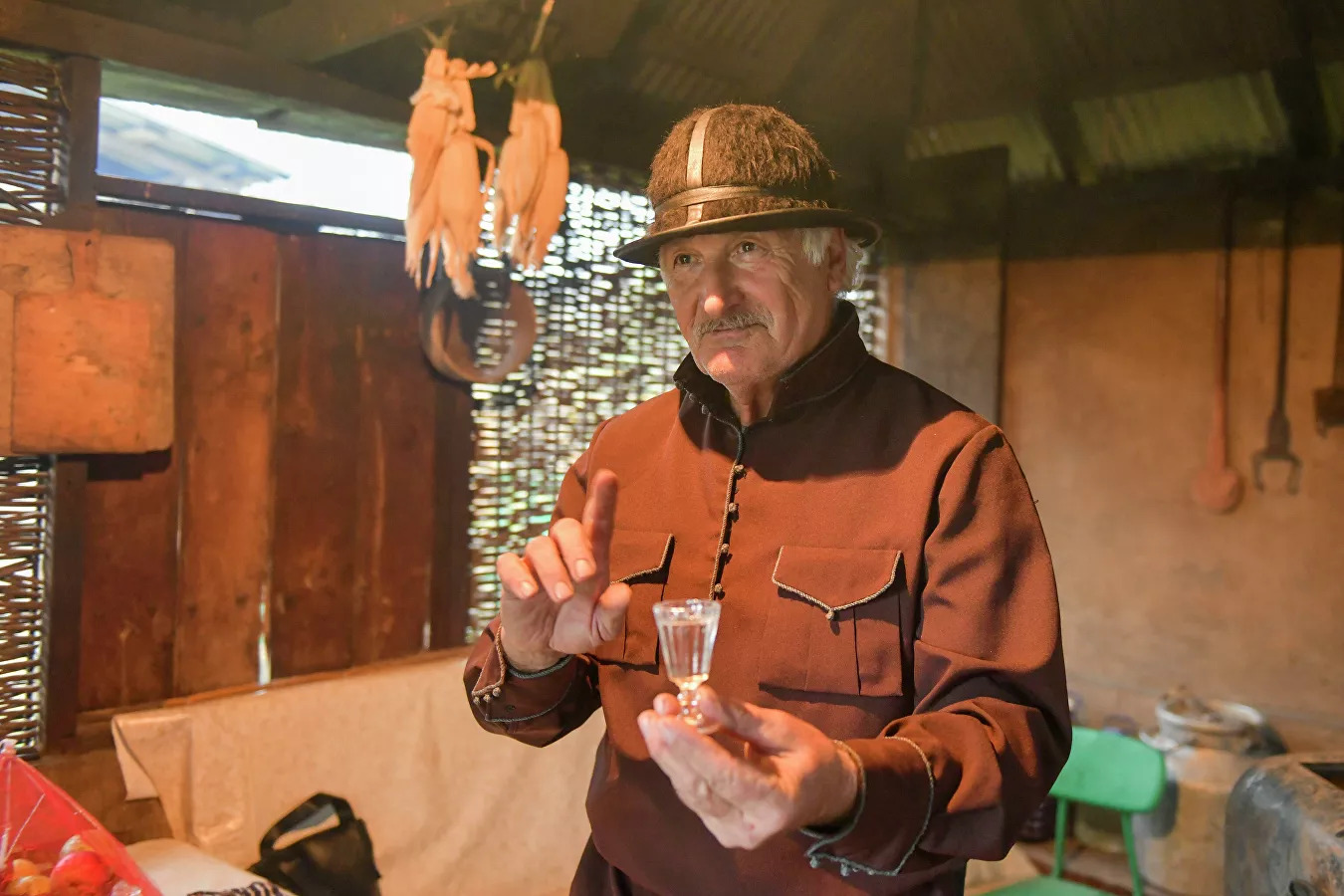 Roland himself rarely drinks chacha. He prefers wine.
Roland himself rarely drinks chacha. He prefers wine.
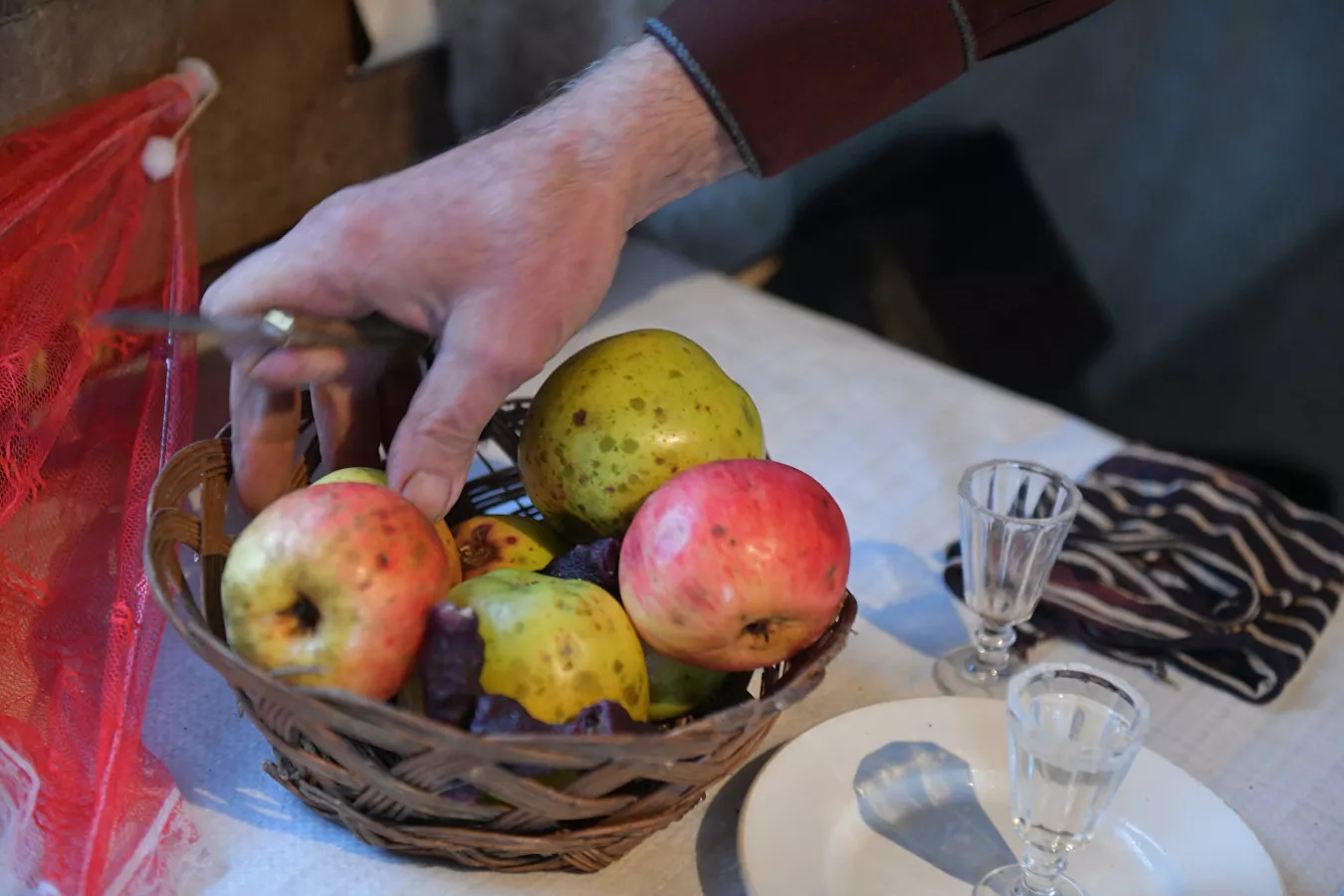 In Zantaria’s "laboratory" (viz. his “apatskha”), a plate with a natural appetiser is always at the ready.
In Zantaria’s "laboratory" (viz. his “apatskha”), a plate with a natural appetiser is always at the ready.
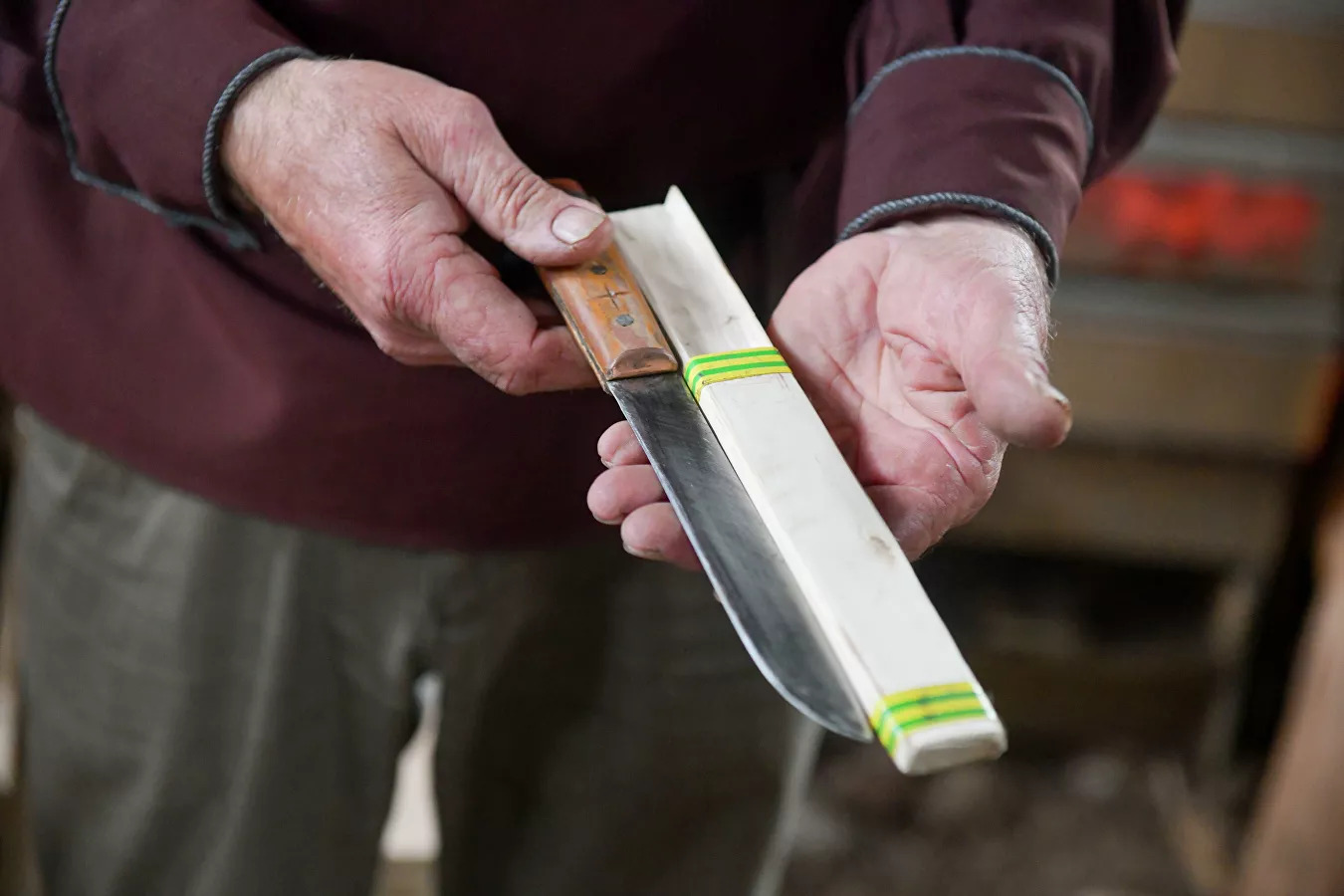 The pensioner is also fond of making Abkhazian knives. He makes the blade from a circular disc, and the handle from walnut, buffalo horns or plastic.
The pensioner is also fond of making Abkhazian knives. He makes the blade from a circular disc, and the handle from walnut, buffalo horns or plastic.
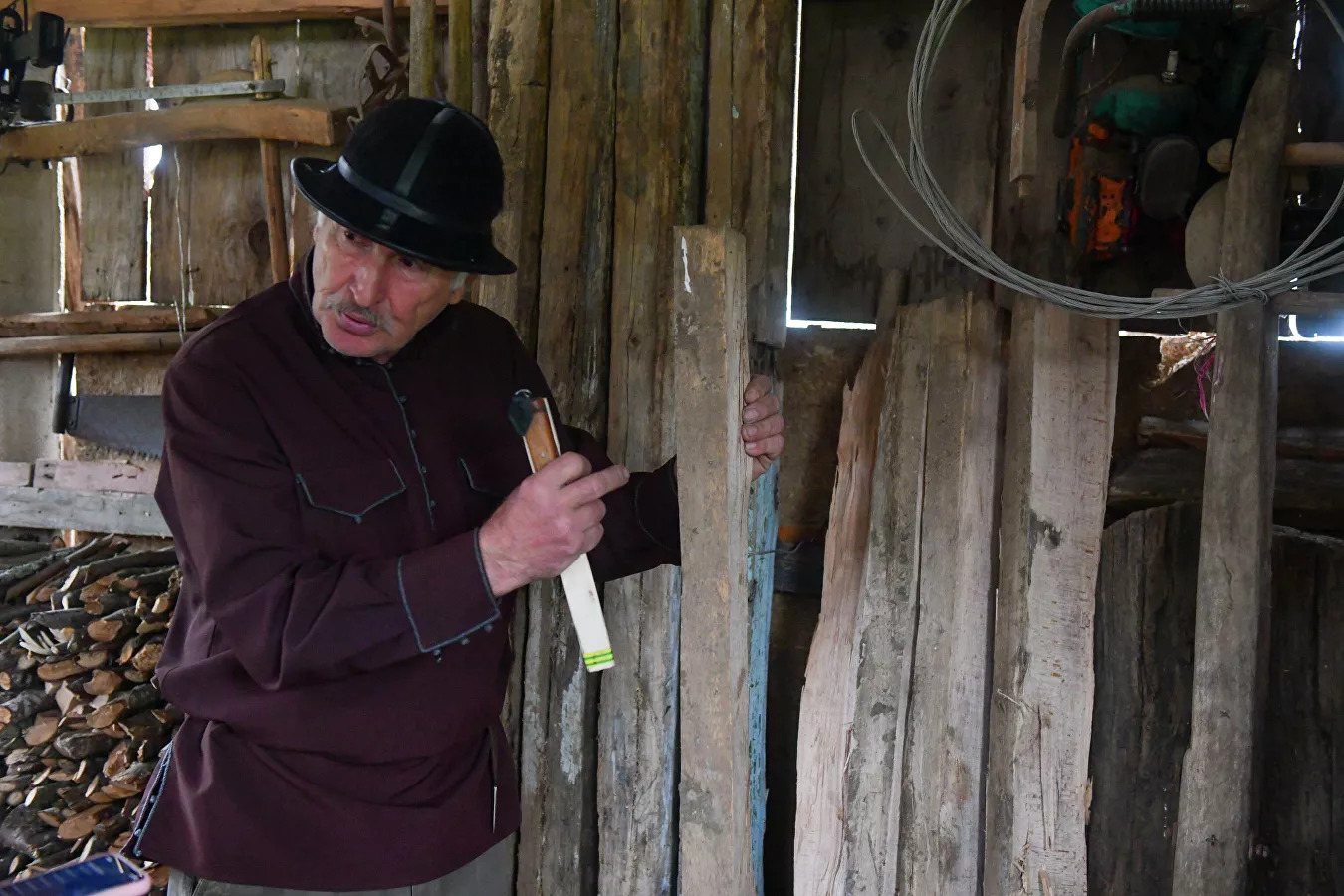 Two years ago Roland Zantaria began making Abkhazian walking sticks (in Abkhaz “alabashakWa”).
Two years ago Roland Zantaria began making Abkhazian walking sticks (in Abkhaz “alabashakWa”).
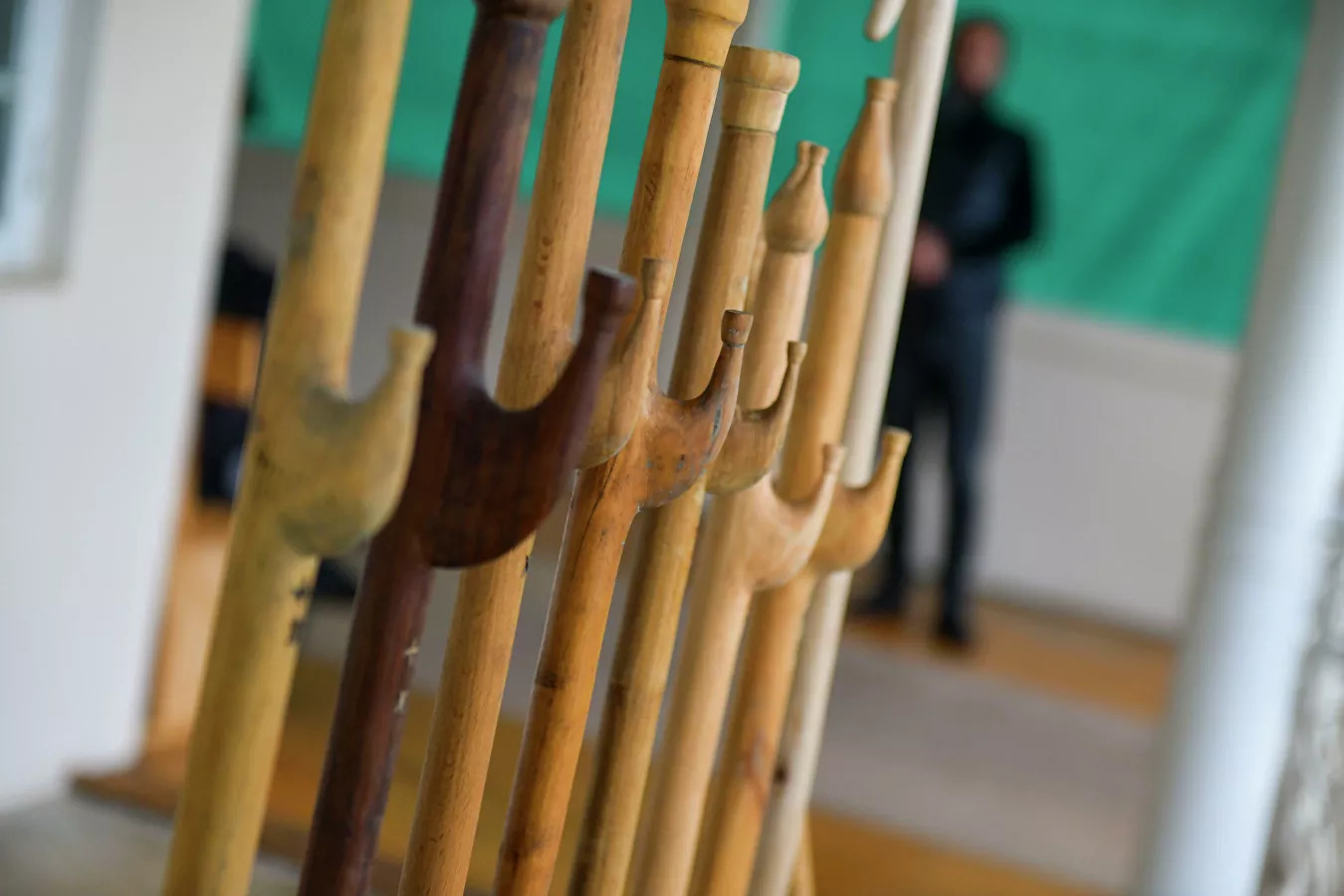 Each “alabasha” is different in its form and purpose. In the Zantaria collection there are staffs that are held by shepherds, hunters, peasants, as well as special "royal ones".
Each “alabasha” is different in its form and purpose. In the Zantaria collection there are staffs that are held by shepherds, hunters, peasants, as well as special "royal ones".
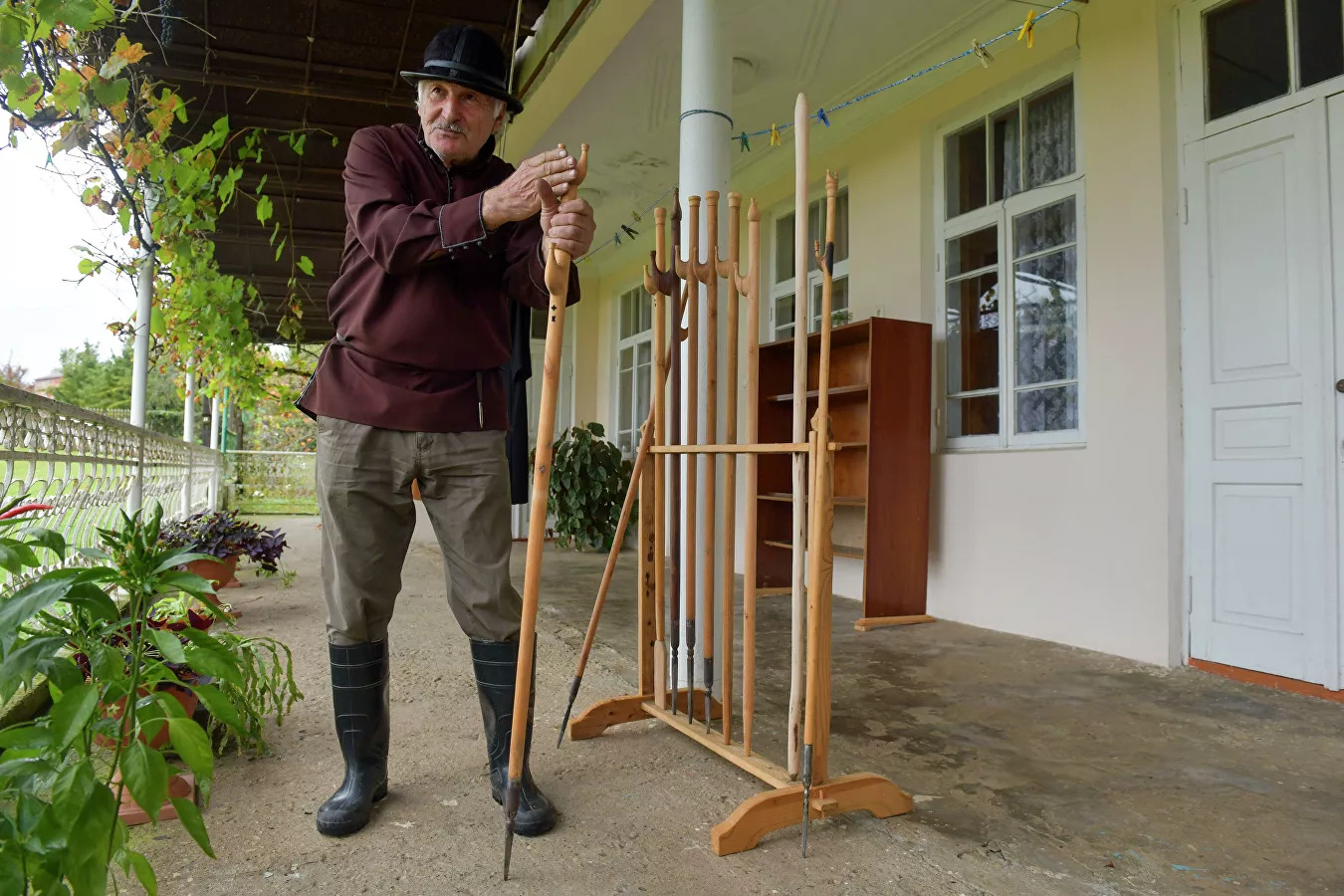 “Alabasha”-s are mainly made from pecan, dogwood, beech and acacia.
“Alabasha”-s are mainly made from pecan, dogwood, beech and acacia.
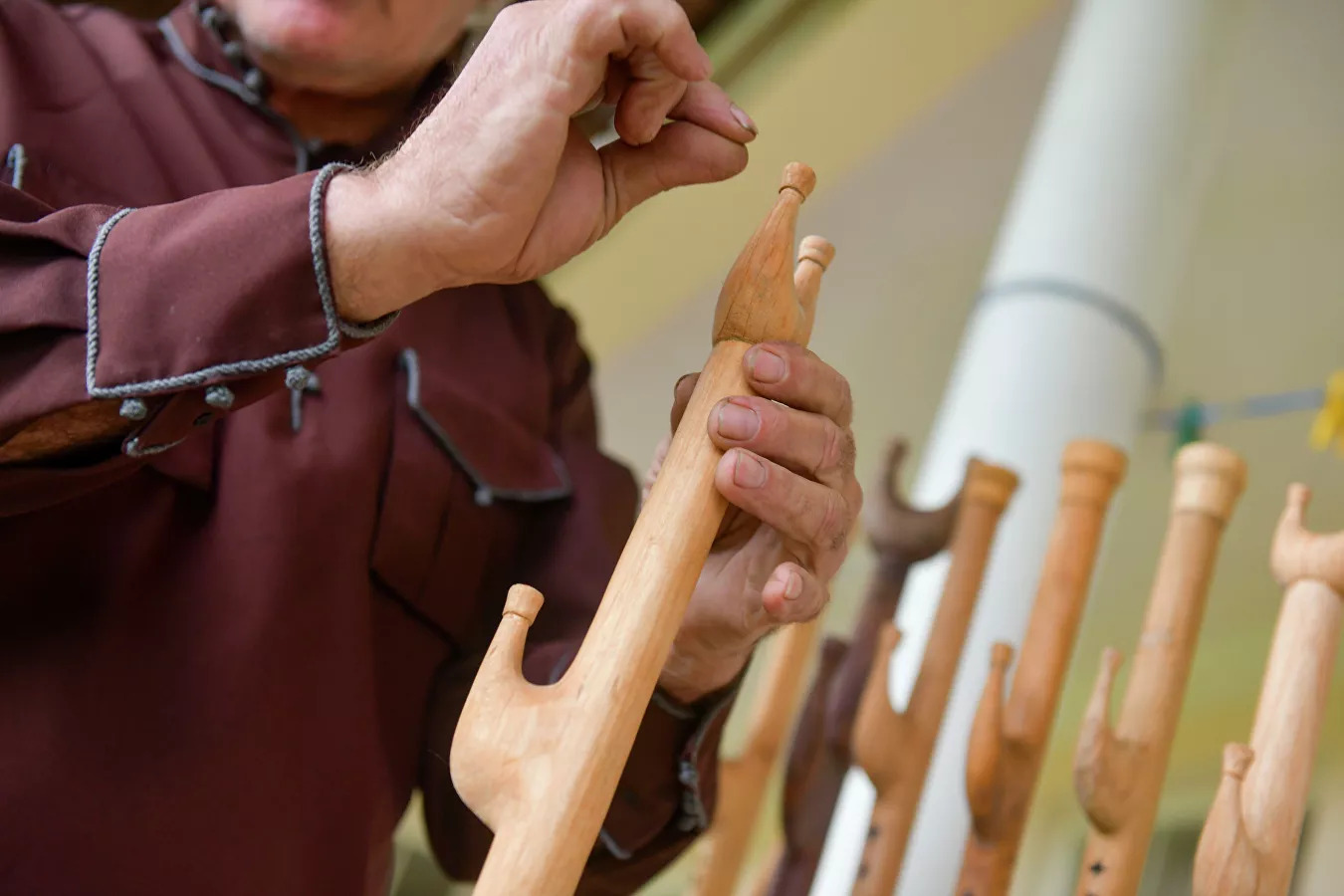 By the shape of the upper part of the staff, you can determine what it is for and who uses it.
By the shape of the upper part of the staff, you can determine what it is for and who uses it.
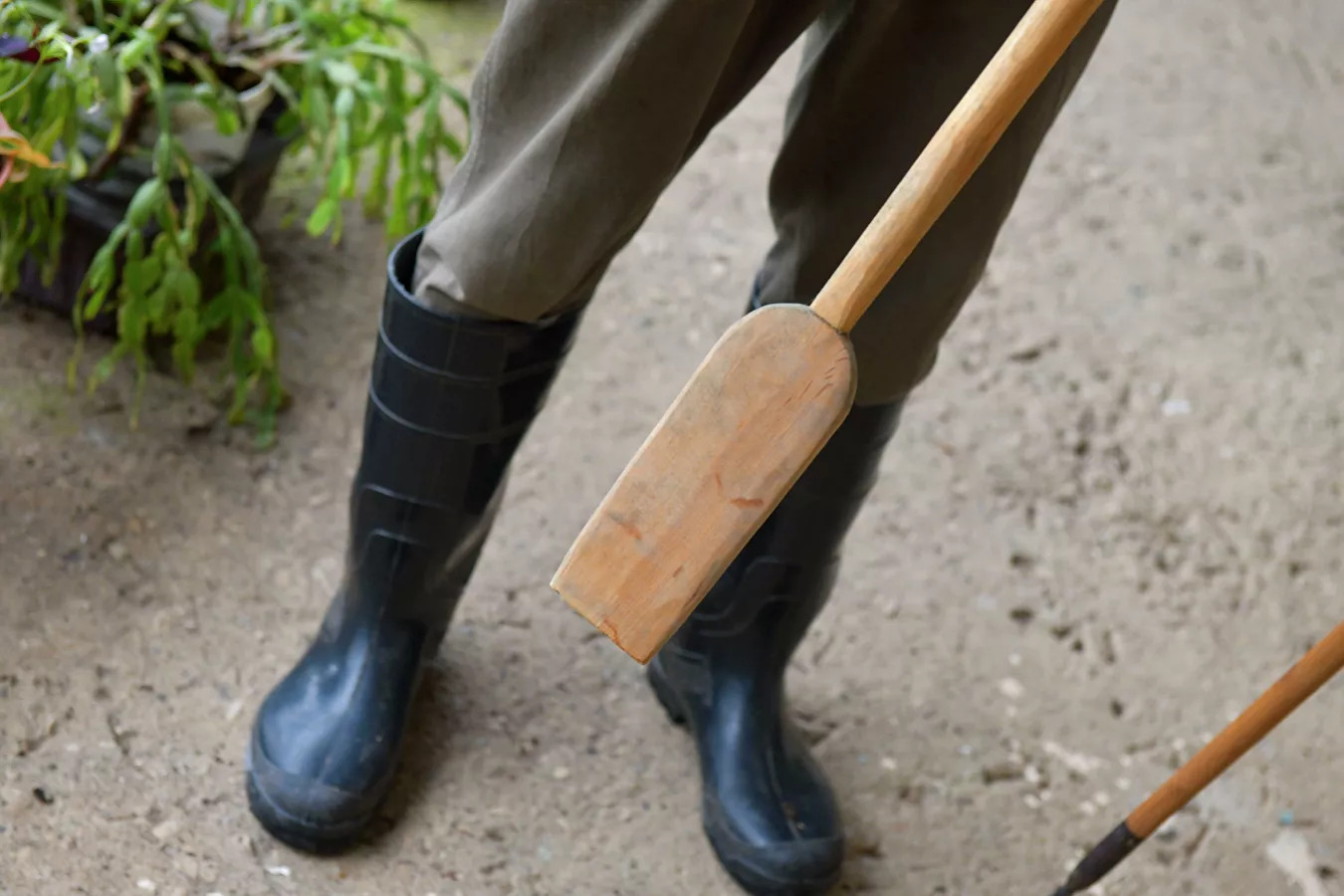 This cane is for winter. The flat bottom of the staff is used to clear the path of snow.
This cane is for winter. The flat bottom of the staff is used to clear the path of snow.
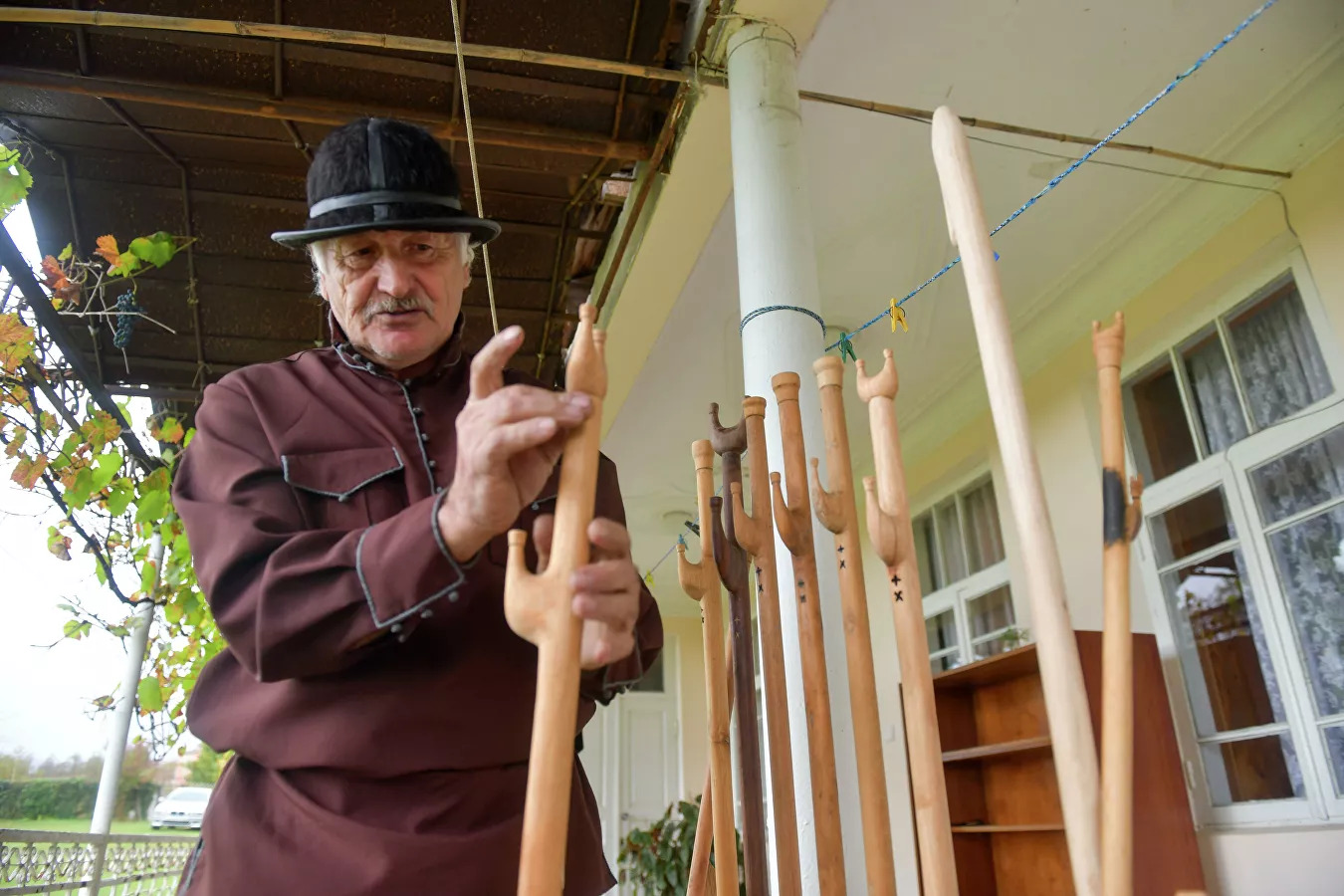 Roland Zantaria made his first cane with his own hands two years ago.
Roland Zantaria made his first cane with his own hands two years ago.
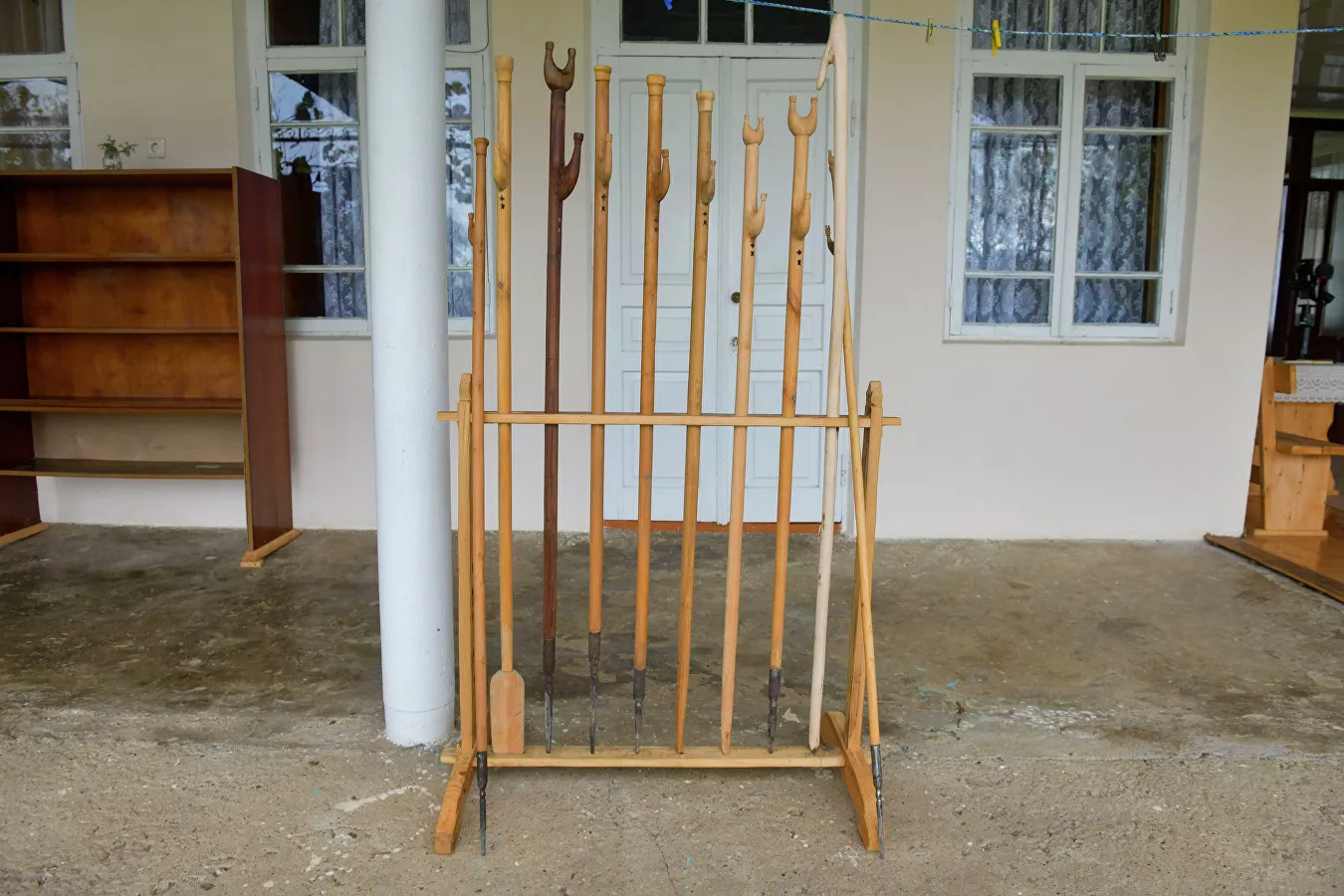 Today, there are more than ten such attributes of Abkhazian elders in his collection.
Today, there are more than ten such attributes of Abkhazian elders in his collection.